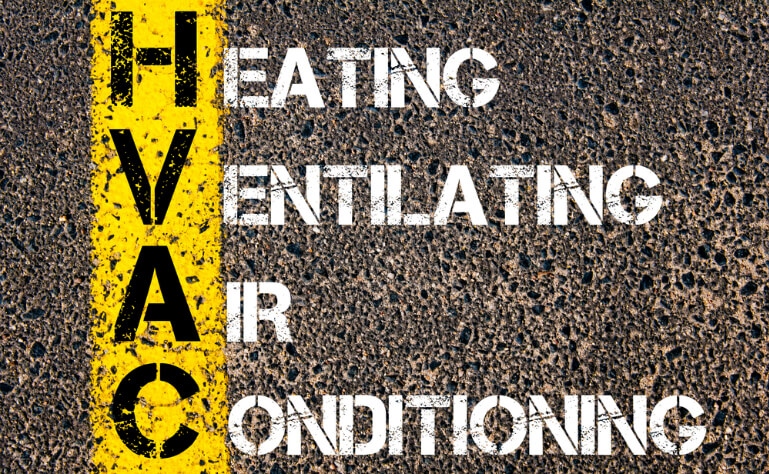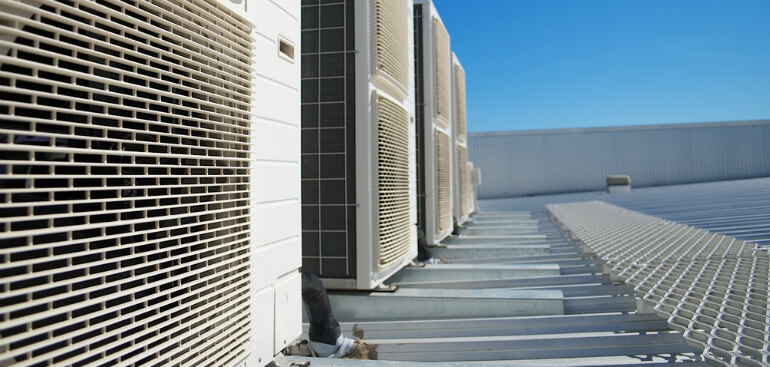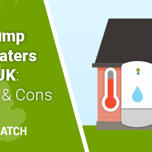Answer these simple questions and we will find you the BEST prices
Which type of solar quotes do you need?
It only takes 30 seconds
100% free with no obligation

You need to fill in only 1 form to get free quotes

We call you to confirm your enquiry

Receive quotes from local installers
- GreenMatch
- Blog
- Central Heating Ventilation and Air-Conditioning (HVAC)
Central Heating Ventilation and Air-Conditioning (HVAC)
What does HVAC stand for?
Even if you might have come across the HVAC acronym while searching for air conditioning or home heating solutions, you might still wonder what it stands for. The HVAC term has been widely used lately, in order to define complex systems that integrate three distinct functions: heating, ventilation and air conditioning. These multiplex systems are usually installed in new residential, industrial and office buildings, providing the much needed heat and air conditioning more efficiently. Since almost half of the utility bills you pay every month or every quarter end up covering the costs of heating and cooling, it should come as no surprise to see more and more homeowners turning to HVAC systems in order to save on their energy bills.
Nowadays, the central HVAC system proves as essential as water and power supply when developing new residential or industrial buildings. The main roles of a HVAC system are to:
- create and maintain a comfortable habitat for humans, animals, plants or even objects that require specific climate conditions, within the limits of a building.
- save energy and financial resources for creating and maintaining the desired micro-climate.
Since HVAC is a wider categorization of a network of systems that are put together for ensuring adequate heating, ventilation and air cooling -rather than an autonomous system in itself,- the proper functioning of HVAC depends on how well all these systems are configured to work together without interfering with each other. Thus, on a more simplistic level a central HVAC system will include: a ground source heat pump used for providing heating and cooling, a number of ducts and pipes for ventilation purposes, underfloor heating and/or radiators for distributing the heat across the house, air humidifiers and dehumidifiers, ionizers, etc.
If properly configured, the HVAC systems will behave differently in different situations: with open or closed windows, in the presence or absence of people, at different time of the day and days of the week, depending on the changes in energy pricing and personal preferences, etc. In addition to this, an up to date HVAC system can be remotely controlled via the internet, from a smartphone or PC controller.

HVAC Efficiency Rate
Over the last 30 years HVAC manufacturers have continuously improved the energy efficiency of their products, achieving a better market exposure by the dawn of the 21st century. Due to the constant rise of fossil fuels prices (for the last 30-40 years), the prospect of installing a HVAC system turned out to be a reasonable long term investment despite it used to be perceived as too complex and expensive for one to operate. A HVAC system, will not only save one’s money but will prove a sustainable and environmentally friendly solution as well.
In the end, the overall efficiency rate of a central HVAC system comes down to the energy efficiency of each of the separate systems that are part of the HVAC configuration. Therefore, the HVAC efficiency can be divided in 3 distinct categories: heating energy efficiency, air conditioning (cooling) efficiency and ventilation energy efficiency.
Heating energy efficiency
Given the latest technological advancements in the field of air source heating, many of the nowadays central heating appliances use forced air instead of hot water as a mean to generate and distribute heat throughout the house. It proves more cost and energy efficient. These type of systems, of which air to air heating is an indispensable part, can ensure energy savings of up to 15-20%. Nevertheless, the costs associated with installing a system like this will prove much higher compared to the expenses for the same installation works carried out for a conventional, water-based heating system.
In order to gradually improve the efficiency rate of an air source heating system, it is recommended to install a thermostat as well. This will make sure the heat that is being produced is just enough for maintaining the desired temperature without wasting much of the energy, as it is often the case with water based heating.
If one wishes to further capitalize on the cost-efficiency of a HVAC heating system, and is ready to make a substantial investment, then a ground source heat pump will ideally serve this purpose. Although expensive in the beginning (given the pump’s equipment price and the costs associated with carrying ground works), the savings on heating or electricity bills coupled with the government subsidies scheme will shorten the payoff period to around 7 years.

Air conditioning energy efficiency
The efficiency rate of the HVAC air conditioning unit is rated by a Seasonal Energy Efficiency Ratio (SEER), which most often ranges from 13 to 23 - the highest values pointing to the most efficient air conditioning equipment, in terms of energy savings on a yearly basis. In the past two decades, with the implementation of the latest discoveries in the field of thermodynamics, the SEER ratings have witnessed a continuous upward improvement. In order to check for the SEER rating of your air conditioning device, you need to look for a yellow or/and black label sticked on the conditioner’s air compressor. If you are looking for a premium category air conditioner, then you should check the if the air conditioner comes with a ‘Energy-Star’ label, which boast SEER ratings of around 14,5.
As it is the case with heating energy efficiency, getting a ground source heat pump, will prove a wise investment in getting a cost efficient air conditioning too. Since a ground source heat pump can be used for generating heat in the winter and cooling in the summer, it might prove the golden mean for optimizing the costs and energy efficiency of a HVAC system. However,, a heat pump like this cannot ensure a high heating output and is somewhat inferior to an upscale air conditioning system when it comes to cooling or those who live in areas with a temperate climate weather - like the UK, getting a ground source heat pump as a heating and cooling unit for their HVAC system will prove a wise choice.
Get Quotes on Heat Pumps!
If you have decided to purchase a ground or air source heat pump, but you are not sure which type you would like, we are ready to help you. Fill out the form on this page with your personal preferences and information, and we will provide you with up to four different suppliers of heat pumps. You are free to choose the offer that best suits your needs. The service is free, without obligation, and takes only a few minutes.
Fill in the form in just 1 minute
We strive to connect our customers with the right product and supplier. Would you like to be part of GreenMatch?





